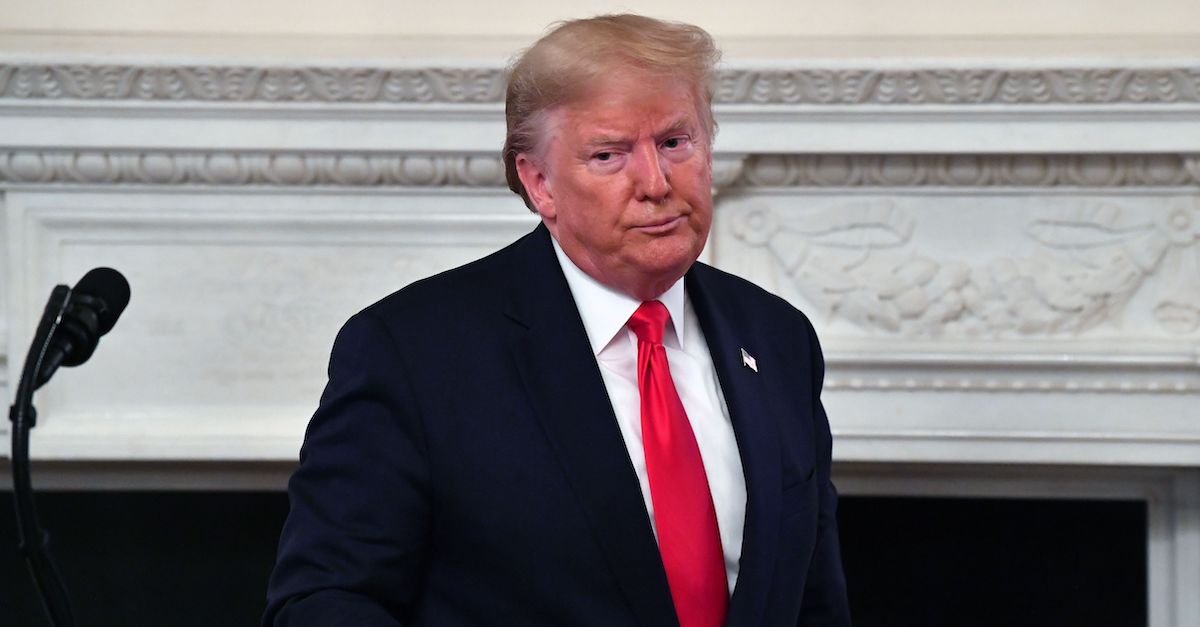
House Democrats on Saturday asked a federal judge in Washington, D.C. to resume the legal proceedings on the Ways and Means Committee’s lawsuit seeking to obtain President Donald Trump’s tax returns. In doing so, they used arguments put forth by Trump’s impeachment legal team.
In an 11-page motion asking U.S. District Judge Trevor N. McFadden, a Trump appointee, to lift the stay on the Committee’s lawsuit, House general counsel Douglas Letter accused President Trump’s impeachment lawyers of disavowing arguments made in this case about congressional subpoena enforcement.
“[C]ounsel for President Trump in the Senate impeachment trial disavowed the position of Defendants (who include the President) in this case that the House is constitutionally barred from obtaining judicial enforcement of its subpoenas,” the motion said. Letter specifically cited to Trump’s formal Answer to the Articles of Impeachment and statements made by the president’s impeachment attorneys Jay Sekulow and Alan Dershowitz.
In court filings to prevent House Democrats from obtaining his tax returns, Trump and the DOJ have repeatedly insisted that Congress cannot use the judicial branch to enforce a subpoena against the president. At the same time, Trump’s impeachment legal team said the House should have gone to court to enforce subpoenas.
“Defendants now try to disavow the disavowals, citing statements by other members of the President’s impeachment trial team,” Letter wrote. “Those efforts are unavailing. Defendants seek to characterize the statements upon which the Committee relied as conditional. They were not. They represented clear and unqualified statements that House committees may and, indeed, should, if necessary, go to court to enforce their subpoenas.”
The motion then included an excerpt from another high-profile attorney who represented Trump during the impeachment trial – former U.S. Solicitor General and former independent counsel Kenneth Starr.
As Kenneth Starr, a former Solicitor General of the United States and former judge on the D.C. Circuit, stated in terms that could not have been clearer: “The House of Representatives could have followed that well trodden path. It could have sought expedition. The E. Barrett Prettyman Courthouse is 6 blocks down. The judges are there. They are all very able. They are hardworking people of integrity. Follow the path. Follow the path of the law. Go to court.”
Noting how accomplished the attorneys on President Trump’s impeachment team were, Letter asserted that any attempt by the president to directly contradict them in this case is nothing more than subterfuge intended to further delay arguing on the merits of the case.
“Defendants appear to be arguing that what President Trump’s impeachment counsel meant to say was that, before impeaching the President, the House was required to file futile subpoena-enforcement suits so that DOJ could then successfully obtain dismissal on justiciability grounds, without any ruling on the merits,” Letter wrote. “The Court should not assume that the President’s accomplished lawyers meant to advance such a cynical argument—that Congressional committees are constitutionally obliged to waste their own time and resources, and those of the Judiciary, on futile gestures.”
Letter also argued that, because House elections are held every two years, the case needs to be adjudicated or else it risks allowing future executives to simply delay congressional lawsuits until there’s a change of power in the chamber.
“If litigation over House inquiries were handled at the pace Defendants urge, the Executive Branch could evade effective oversight by doing what Defendants are doing here—running out the clock,” he concluded.
McFadden halted this case in January pending the outcome of the Don McGahn subpoena case. The main issue appears to be standing.
Read the full motion below:
House Reply to Trump by Law&Crime on Scribd
[image via NICHOLAS KAMM/AFP via Getty Images]